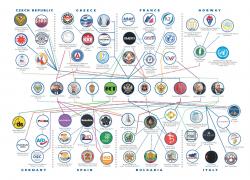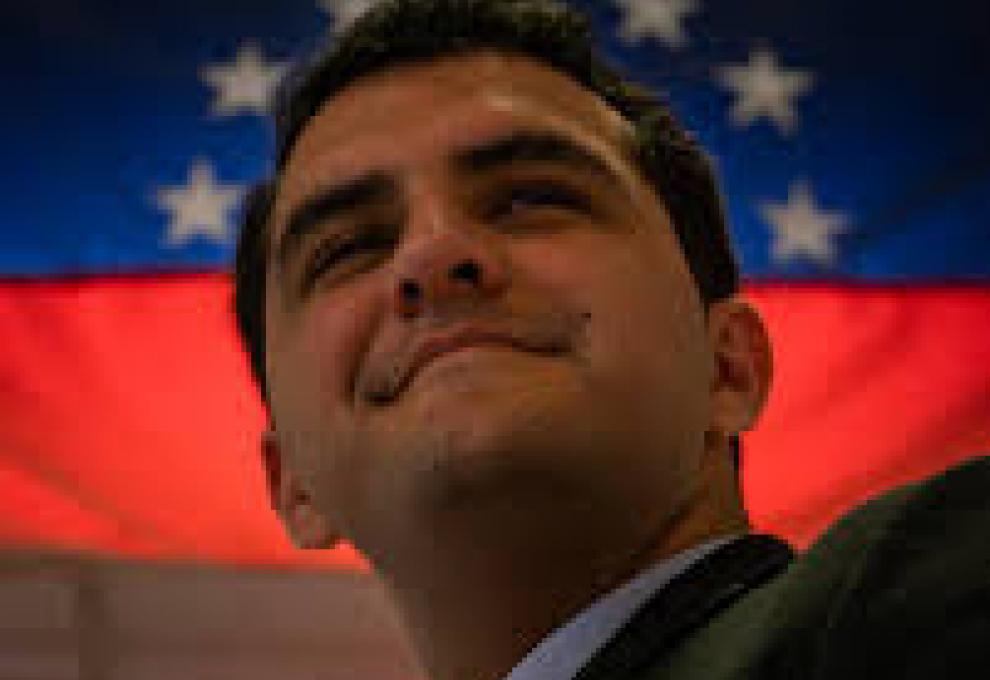Conspiracy-Theory Socialism
If there's central planning for ill, why not for good?
Aparticularly unfortunate element on the fringes of the freedom movement is belief in a variety of conspiracy theories about government and the economy. Some theories are less damaging than others, but some are much nastier, suggesting, for example, that international Jewish bankers created and have sustained the Fed’s attempts to manipulate the money and credit system for their own enrichment.
Conspiracy theories are as old as human thinking; they satisfy a deep desire to believe that some person or group is in control of everything and that the apparently chaotic way that social life evolves actually has an underlying unity. In this way, observers have argued, conspiracy theories substitute for religion, providing meaning to what would otherwise be a meaningless social world.
And like religion, conspiracy theories ultimately rely on faith. The “best” theories are those that are impenetrable by contradictory evidence. They are, in the language of philosophy, “unfalsifiable.” Supporters of such theories will resort to the argument that any counter-evidence is really evidence for the theory, since it shows how clever the conspirators are in distracting our attention from their real power.
This is not what classical liberals should want to engage in. Our case for freedom must ultimately rest on reason and logic, and we must be open to evidence that genuinely contradicts our understanding of the world. Conspiracy theories are closed systems of thought that are the precise opposite of the open, evolving, dynamic worldview that informs our classical liberalism.
But there is a more fundamental problem with a classical liberal’s embracing most conspiracy theories. Ultimately, believing that a small group of evil people are manipulating economic and social processes for their own ends concedes to defenders of government economic planning that controlling and manipulating the economy is in fact possible! In other words, conspiracy theories are a form of socialism. If international bankers really are using the Fed to manipulate the economy to enrich themselves, or if politicians and bureaucrats are using the welfare system to undermine the family or to impoverish African-Americans, then using government to achieve fairly specific ends is apparently possible.
Notice that I’m not denying that government can cause all kinds of problems, or that institutions such as the Fed are in fact undermining economic well-being. (I’ve been a career-long critic of the Fed, especially about its role in causing the current recession.) What I am arguing is that the source of the problems they cause is not the evil intentions of those who occupy the seats of power, but the structural problems faced by all governments when they attempt to perform the tasks assigned them. It is not the Fed’s evil or the incompetence that leads to trouble but rather its ignorance.
Why Not Noble Conspiracies?
If we resort to conspiracy theorizing, we also leave ourselves open to an obvious response from our critics: If a small group really can manipulate the economy for evil ends, why can’t a small, or even a large, group manipulate the economy for more noble goals, say, some form of social justice? When we fall into conspiracy thinking we are actually accepting the fundamental premise at the heart of every form of socialism: that it is possible for human beings to consciously control the economy or society more generally. In doing so we fail, as I argued last week, to make the strongest case against those who think government can improve on the market.
At the most fundamental level, conspiracy theories cut against the concept of spontaneous order, which has been at the center of classical-liberal thinking since the late eighteenth century, if not earlier. From Smith to Menger to Hayek, the market, and social evolution more generally, have been understood as a discovery process that no one designed or controls. The very miracle of the market that we celebrate all of the time demonstrates that human action under the right institutions produces coordination, cooperation, prosperity, and peace without the need for conscious direction.
This perspective illustrates how complex the social world is. One implication is that almost every choice people make, whether market actors or political actors, is likely to have unintended consequences as it interacts with institutions and the choices of others. Conspiracy theories suggest that the conspirators can somehow avoid unintended consequences. They are strangely able to fashion the world according to their own image, effortlessly cutting through the complex patterns of society.
The ability to construct the world just as we like — without unintended consequences — was at the heart of Marx and Engels’s idealized socialist future. When classical liberals resort to conspiracy theorizing, they concede the possibility of such control and make it much too easy for their critics to ask why better people couldn’t do it right. Conspiracy theories are among the weakest ways to defend freedom. Freedom’s defenders should shun such beliefs and reaffirm our commitment to reason, logic, and the power of spontaneous-order explanations.
By Steven Horwitz
Steven Horwitz is the Distinguished Professor of Free Enterprise in the Department of Economics at Ball State University, where he also is a Fellow at the Institute for Entrepreneurship and Free Enterprise. He is the author of Hayek’s Modern Family: Classical Liberalism and the Evolution of Social Institutions.
This Article was first published at FEE
https://fee.org/articles/conspiracy-theory-socialism




















